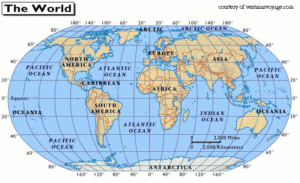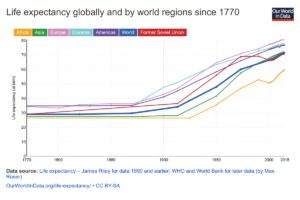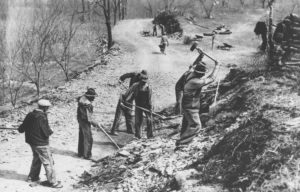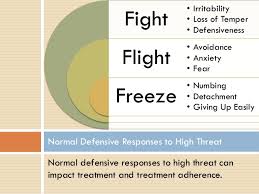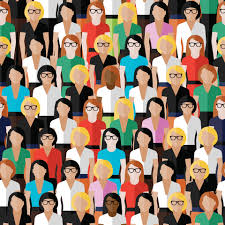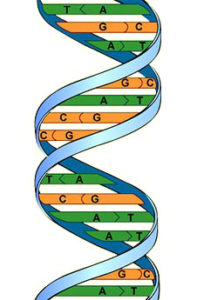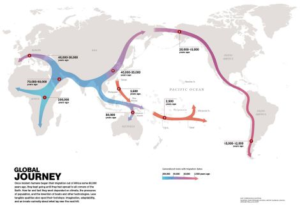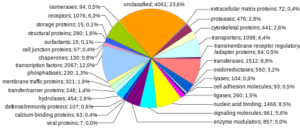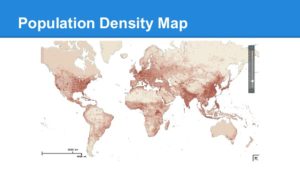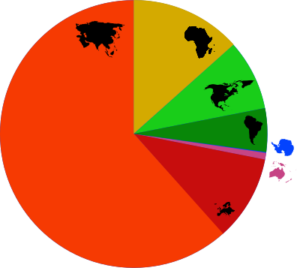Like a lot of people, I have been thinking about what caused of the deep social divide within the USA (worldwide).
The social divide can be understood by thinking of the collision between the industrial age and information age. Said another way, the information age brought with it fundamental changes in what is “normal” and many people are struggling with that.
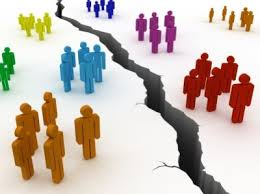
Inherent in the industrial age is the concept of the zero sum game. According to Wikipedia a “zero-sum game is …a situation in which each participant’s gain or loss …is exactly balanced by the losses or gains …of the other participants.” In practice it means if one person gets richer, someone else has to get poorer. If one group gets ahead another group, by definition, falls behind.
It gets complicated but in the industrial age, social constructs such as ownership, group membership, marriage, wealth, employment and even crime are ruled by this zero sum concept. Contracts, laws, societal norms, organization membership are very often about the rules under which the zero sum game of “haves” and the “have nots” is enforced. My point here is not to judge the realities of the industrial age as being good or bad rather to point out that we, as a society, created those realities and lived within them.
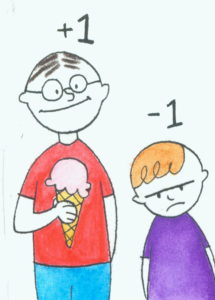
Also inherent in the industrial age is the creation of value by building and or owning physical things. My dad was a bricklayer. He passed over 45 years ago but I still see the value he added when I view things I saw him build. The point is for those of us who grew up in it or are currently influenced by the industrial age, there are assumptions and concepts (constructs) that we knew were true. Work hard and build something that will last more than a lifetime is an example.
Those industrial age constructs are to us, normal. They are good. We believe that ideas like, “owning a home is a good life goal” are good ideas. Something to be proud of. Owning a cool car is better than just functional transportation. There are hundreds of examples of ideas like these that form the core of the social constructs of the industrial age. Trying to change those constructs is to try to change our way of life. In America we called it the American way of life. We fought/fight wars to defend our way of life.
Before the industrial age was the agricultural age. The agricultural age had its own societal constructs which were under attack when the industrial age happened. The industrial age started in the late 1700s. It took over a century for the industrial age to reach the point of being pervasive over the agriculture age.
Remember that wars were fought around the world and here in the US between the agricultural and industrial points of view. Young men went to war to defend their way of life. For one side that way of life was mostly agricultural and the other side that way of life was mostly industrial.
The start of the information age is roughly in the 1960’s. But around 2000 to 2010 the interconnected technology that is the information age became pervasive worldwide.
Clearly, the world is beyond the tipping point between the industrial and information ages. We are in the information age. There are still farms and factories but the information age has fundamentally changed both farming and manufacturing. The information age has changed how most everything is being done. Libraries, shopping, entertainment, jobs, memberships in various organizations, crime, wars, relationships, and more have all fundamentally changed within the past 10 – 20 years as a result of the coming of the information age.
Like it or not, the information age is here. It did not take a century and devastating civil wars to reach the point information technology being pervasive. Even a walk in the woods is often accompanied with a digital camera (your phone).
Whereas the underlying concept of the industrial age was the zero sum game, it is not the underlying concept of the information age. Information is not zero sum in nature. Just because one person has a piece of information does not mean another person cannot have the same information. In fact, the underlying concept of the information age is exactly about the sharing of information.
In the information age, large manufacturing facilities do not employ large numbers of people. A big farm does not employ far more people than a small farm does. In the information age, membership in a group is often a virtual thing. We pay bills online. We purchase tickets for the big game online. Much of our entertainment is streamed. Not to mention the prevalence of online shopping. We connect with each other electronically. The list of examples demonstrating we are in the information age goes on and on.
I feel like there is no need to convince anyone we are in the information age because we all live in the information age every day. What I think is not as clear is that the societal constructs (what is normal) of the information age are changing rapidly and they are different than those of the industrial age.
Let me give you an example. Most of us have directly or indirectly been the victim of a cyber related crime. Our credit card numbers, identities, accounts, have been hacked. Many of us get called by people with scams trying to get our private information some of which are even sponsored by foreign governments. Terrorist organizations are using online tools to recruit members. People are spreading fake information, some of which is dangerous. These types of information age crimes (cyber-crime) are rampant.
Fighting cyber-crimes, not surprisingly, requires understanding and use of information age tools and weapons. One has to understand information age technology to defend us from the bad people who are attacking us by using that technology. Which calls into question the balance between focusing on physical crimes vs focusing on cyber-crime by the various levels of enforcement agencies. It certainly calls into question some of the focus we as individual citizens have on security. The volume cyber-crime is skyrocketing. Some of us need to focus more on our online security. Point being, what is “normal” has changed from what it was in the industrial age to what it is in the information age.
Information age jobs are not threatened by immigrants willing to work for a lower wage. In fact, most information age jobs are about skill in using information age systems. Experience has shown that the age, gender, race, national origin, sexual preference, previous income level, sports achievement level, and the like have little or no bearing on a person’s ability to use information technology. Training does help. Access to the technology does. Willingness to put in the time and work hard at it is probably the thing that helps the most.
So with all that background here is the point of this post.
It is very understandable that many people feel that something is basically wrong in the world because so many things they grew up knowing to be true are now, not so much. The rules of the game have changed and nobody asked their permission first. They don’t feel as grounded. Things are just not right and something needs to be done about it. It is not like it used to be.
On the other hand, many of those who have embraced the information age can’t figure out why everyone else feels so threatened by things that seem to be so beside the point. From the information age point of view, getting everyone connected, is the goal not the thing to fight against. From the point of view of the information age, only 4.4% of the world population lives in the USA and the goal is to interconnect the whole world population. Because then they can market to not only the USA population but also those in the rest of the globe. From their point of view, the USA may actually be in danger of falling behind.
Conclusion
The deep social divide within the USA is understandable because with the coming of the information age, our way of life really has changed. Accepting change in a way of life is tough.
I’ve spent what seems like a lifetime working on new system projects. Some were very small projects, some relatively big. Here is the reality when people have to adapt to a new system. You cannot tell people how to feel about what is happening around them. None of us can stop the information age from coming, it is already here. But how you feel about it is your own business.
All we can do is reassure people that when things change they will still fit in. They still belong. They will not be left behind. Most of the time whether that change is good or bad has nothing to do with what is actually changing. What it has everything to do with is feeling like you fit in. The problem is most often not so much that there is something new rather will this old thing that is me, still be relevant.

Worry not. If you are reading this, you already fit in. This post is in a media that can only be read if you are part of the information age. So we move forward because that is what we do.
Thanks for reading my first post.

